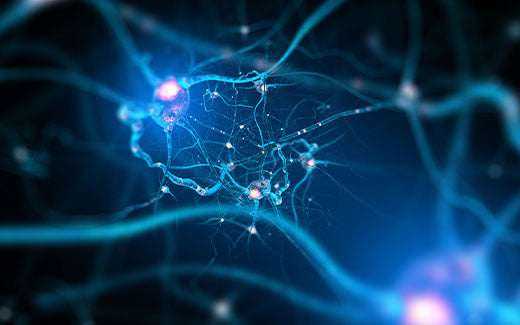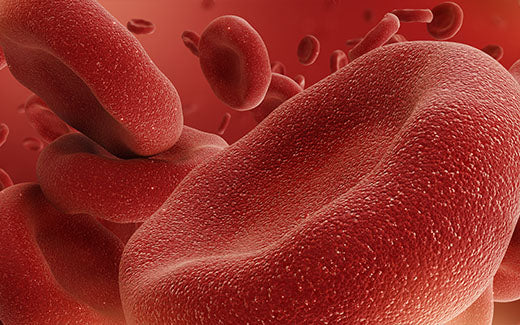Metabolism Catalyst
Perhaps one of the most significant roles of Vitamin B12 lies in its function as a metabolic catalyst. Acting as a coenzyme, it enables the conversion of the food we consume into energy. Think of it as the key that unlocks the power within the nutrients in your food, thereby giving you the energy you need to get through your day.
Nervous System Support
The nervous system, the body's communication network, depends heavily on Vitamin B12. This essential nutrient helps synthesize myelin, a protective layer that insulates nerve cells. Think of myelin as the insulation around a wire – without it, the signals (electricity) wouldn’t be as efficient. In the same way, myelin ensures efficient nerve signalling, enabling optimal communication between different parts of your body.
DNA Synthesis and Red Blood Cell Production
When it comes to the construction and maintenance of the body's cells, Vitamin B12 plays a critical role. It is intricately involved in DNA synthesis and regulation, effectively orchestrating the formation and regeneration of cells. This functionality is particularly essential for red blood cell production, which is responsible for oxygen transportation throughout the body. A deficiency in Vitamin B12 can lead to anaemia, a condition characterized by symptoms such as fatigue and weakness, highlighting the importance of maintaining sufficient levels.
Serotonin Production
Mental health is another area where Vitamin B12 proves to be instrumental. It aids in the production of serotonin, a neurotransmitter responsible for feelings of happiness and well-being. Therefore, maintaining adequate levels of B12 can help enhance your mood and overall mental health. A lack of this vitamin can lead to mood disorders, including depression and anxiety.
How to Maintain Sufficient Levels of Vitamin B12
The importance of Vitamin B12 in our bodies is clear, but how do we ensure we get enough of it? Consumption of animal products such as meat, fish, eggs, and dairy is a sure way to maintain sufficient levels. For those with dietary restrictions like vegans or vegetarians, fortified foods or supplements can offer an effective solution to meet their Vitamin B12 needs.
In conclusion, Vitamin B12 is a powerful tool in maintaining our body's balance. It's an unsung hero that powers our metabolism, supports our nervous system, enables cell formation, and promotes mental health. As such, ensuring adequate intake should be an essential part of our daily nutrition strategy.






Share:
Can Taking Vitamin B12 Lift Someones Mood?
A Guide to an Anti-Inflammatory Diet